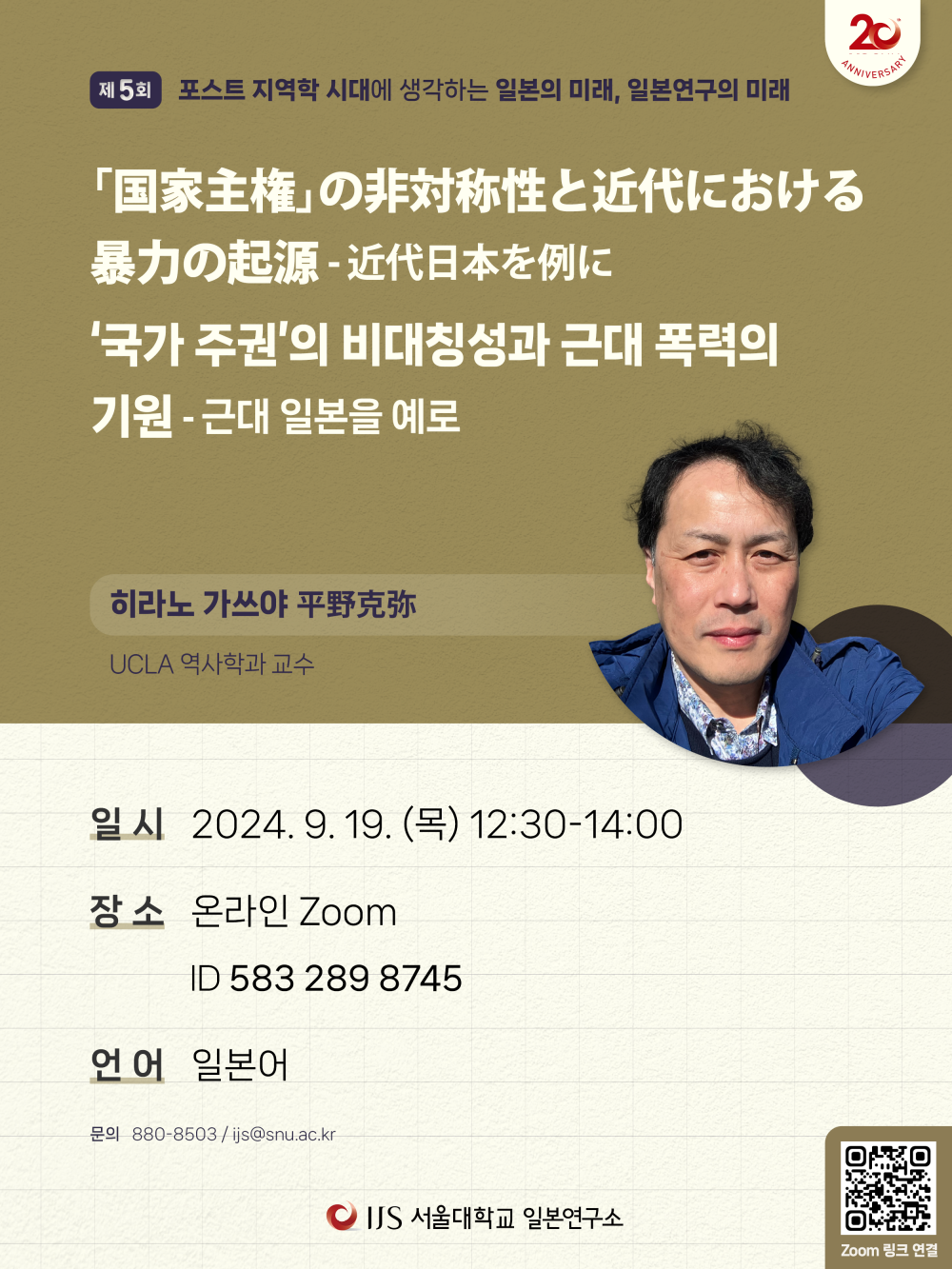
Thirty years have passed since the end of the Cold War and globalization, and the "region" is in the midst of a drastic change in redistricting. Accordingly, the knowledge system that looks at the "region," that is, the content and method of "regional research," is being newly constructed across boundaries.The era of "post-regional research" is now opening. Meanwhile, Seoul National University's Institute for Japanese Studies, which celebrated its 20th anniversary, invited experts from the front lines of each field to prepare eight lecture series to explore the future of Japan and the future of Japanese research.
As the fifth lecture in the series, we will invite Professor Katsuya Hirano from UCLA to give a lecture on the following topic.
Date: 2024.9.19 (Thurs) 12:30-14:00
Venue: Zoom
*Anyone can participate online without a reservation.
Zoom ID: 583 289 8745
Zoom Link : https://snu-ac-kr.zoom.us/j/5832898745
Lecturer: Katsuya Hirano (Professor,Department of History, UCLA)
Title: The Asymmetry of "National Sovereignty" and the Origins of Violence in the Modern Era – The Case of Modern Japan
Summary:
Since the 17th century, the concept of "national sovereignty" that has spread across the world has served to legitimize colonialism and imperialist wars. At the core of this concept is the idea of the "state as a legal entity," where societies that possess such a state are deemed to have the right to resort to war as a means of preserving their property, territory, and right to survival. Conversely, societies without such legal personhood are viewed as territories to be occupied and controlled by those that do.
This asymmetry forms the foundation of the modern geopolitical worldview and is also at the root of the racist notions of "progress" and "barbarism" found in theories of civilization. This lecture examines how the concept of "national sovereignty," which became established after the Peace of Westphalia, normalized colonialism and imperialist wars, using the example of Japan's modernization as a case study.